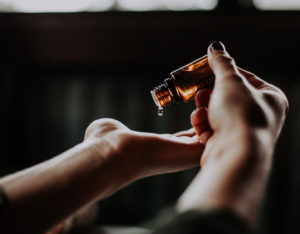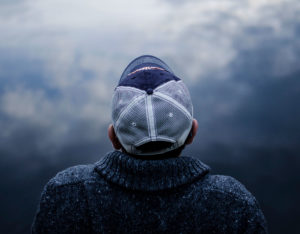When faced with a stressful situation, our bodies respond by releasing a flood of stress hormones. These hormones produce a set of well-orchestrated physiological changes designed to help us cope with perceived threats to our safety and welfare.
Although we don’t normally think of fight-or-flight as a positive response, it’s a vital evolutionary adaptation for self-preservation, which helps us survive, make better choices and be motivated to act.
But the problem is that we’re now living in urban jungles, not wild ones. The threat of being eaten by a wild predator is pretty low. Yet many of us continue to experience a continued fight-or-flight response with persistent feelings of anxiety that can lead to anxiety-related disorders.
Anxiety Disorders and Treatments in the U.S.
In the U.S., an estimated 18 percent of people ages 18 and older, suffer from anxiety-related disorders. That’s roughly 40 million people.
For many, managing this anxiety means taking a cocktail of pharmaceuticals, including selective serotonin reuptake inhibitors (SSRIs) such as Prozac and Zoloft, and tranquilizers such as Valium and Xanax.
Although these drugs can be effective for many, not everyone has a good experience using them. For many patients, the range of debilitating side effects are often worse than the actual anxiety; others simply don’t see much improvement at all. In addition, especially in the case of tranquilizers that fall in the benzodiazepine class of drugs, these medications can be highly addictive, causing a secondary set of problems for many of these patients.
No wonder that many people suffering from anxiety disorders are looking for non-addictive, effective and more natural alternatives such as cannabidiol (CBD).
Cannabidiol for Treating Anxiety
A growing body of anecdotal evidence exists for using CBD to treat symptoms of anxiety and stress. The internet is full of reviews and comments along the lines of, “CBD helps me manage my anxiety” and, “Since using CBD I’m less stressed and anxious.”
However, there is also a growing body of evidence in scientific literature that suggests CBD does show promise as an anxiolytic, the scientific name for any compound that has anti-anxiety properties.
For example, in a 2015 study, researchers reviewed 49 primary preclinical, clinical, and epidemiological studies to assess CBD’s potential as a treatment for anxiety-related disorders. They found that the data supported the notion that CBD is a potentially powerful anti-anxiety treatment when administered as needed—especially for the following conditions:
- Generalized anxiety disorder (GAD)
- Panic disorder
- Social anxiety disorder (SAD)
- Obsessive–compulsive disorder (OCD)
- Post-traumatic stress disorder (PTSD)
How CBD Works
To date, most of the research dealing with CBD for anxiety is based on pre-clinical and animal studies. However, an increasing body of data describing the anxiolytic (anti-anxiety) effects of CBD in humans is starting to emerge, giving scientists insight into how CBD might help people suffering from anxiety disorders.
Scientists theorize that the anti-anxiety effects of CBD is due to:
- the way it interacts with the neurobiology of the brain
- the way it affects serotonin levels
- because it may have the ability to help regenerate neurons in areas of the brain often associated with anxiety and mood
Neurobiological Interaction
One way scientists believe CBD can help with anxiety is how it interacts with the limbic and paralimbic brain areas—the areas of the brain which are thought to be associated with mood and emotional processing.
A small double-blind study of 10 participants suffering from social anxiety disorder (SAD) tested this theory by using single-photon emission computerized tomography (SPECT) imaging that measures regional cerebral blood flow patterns in the brain. They found that, after the administration of a single 400 mg dose of orally administered CBD, participants reported a marked reduction in feelings of anxiety. Moreover, the SPECT imaging confirmed their hypothesis showing that the anxiolytic effects of CBD is associated with changes in the functional activity of brain areas implicated in the processing of anxiety.
A similar study looked at how participants with SAD performed in a simulated public speaking scenario after being given CBD. As in the other study, participants also reported reduced feelings of anxiety, and objective anxiety measures such as heart rate and blood pressure confirmed this. They concluded that CBD has the ability to significantly reduce anxiety, cognitive impairment and discomfort.
Serotonin Interaction
Scientists believe that the neurotransmitter serotonin is one of the major players in mood disorders. This is why medications called serotonin reuptake inhibitors (SSRIs) such as Prozac and Zoloft are believed to help reduce feelings of anxiety.
SSRI’s work by blocking the reabsorption of serotonin in the brain, in turn increasing its availability in the synaptic space. This helps brain cells transmit more of the serotonin signals that reduce anxiety and boost mood.
In an animal study, researchers found that CBD boosts serotonin signaling via the same 5-HT1A subtype of the serotonin receptor that SSRI’s target. What’s more, they even found that CBD may affect serotonin faster than SSRI’s. “The fast onset of antidepressant action of CBD and the simultaneous anxiolytic (anti-anxiety) effect would solve some of the main limitations of current antidepressant therapies,” according to the study.
Hippocampal Neurogenesis
The limbic system, which includes the hippocampus, is thought to play a vital role in emotional processing and mood. Brain scans of patients suffering from anxiety often show that they have a smaller hippocampus, and the severity of the symptoms relating to the severity and duration of the disorder.
Successful treatment of anxiety disorders is often associated with the birth of new neurons (neurogenesis) in the hippocampus. And because of its similarities with SSRI’s, CBD also shows the potential of helping to regenerate neurons in the hippocampus, which leads some scientists to believe this could be one of the mechanisms in which it can help treat anxiety disorders.
How to Use CBD for Anxiety
Because CBD can have some contraindication and doesn’t interact well with certain medications such as certain anti-epileptics and blood thinners, it isn’t a good choice for some. That is why, before using CBD for anxiety, it’s important to speak to your treating physician first.
It’s also important to use a high-quality product and figure out your personal ideal serving size. A study conducted in the ’90s found that servings starting at around 2.5 and going up to 5 and even 10 mg per kilogram of weight significantly increased the anxiolytic effect of CBD. However, CBD at a dose of 20 mg per kilogram was no longer effective, which means that more is not necessarily more. Using a CBD dosage calculator such as this one from ID Weeds or CBD Oil Users can help you figure out the right serving size for you.




